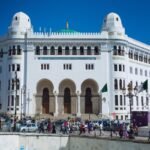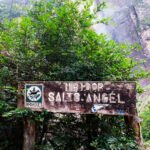Impressions of Venezuela
Venezuela, once a prosperous powerhouse in Latin America, shares borders with Brazil and Colombia, and gazes across the Caribbean Sea toward the United States. With the largest proven oil reserves in the world, Venezuela is blessed with both a strategic location and abundant natural resources—truly a country favored by nature.
However, despite these advantages, Venezuela has been struggling to lift itself out of the deep crisis that has pushed the nation to the brink. Once thriving, it now faces severe political, economic, and social challenges, striving to reclaim its former stability and
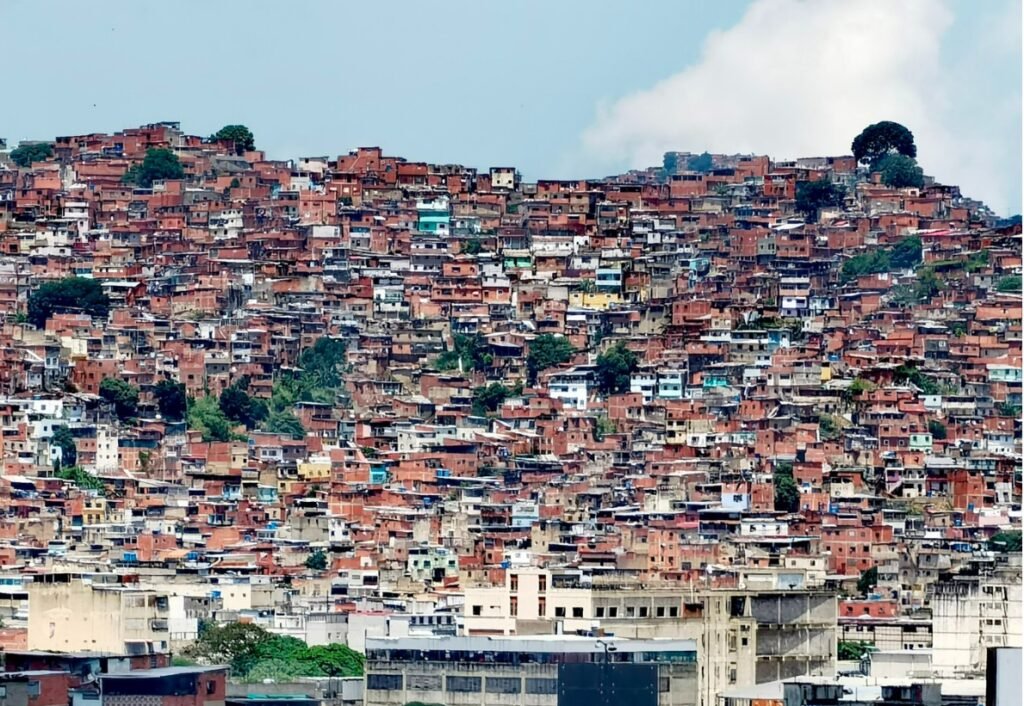
Due to the collapse of Venezuela’s currency system, locals widely accept U.S. dollars in everyday transactions, making the dollar essentially a second official currency. However, because of the dollar’s stability, merchants are often reluctant to give change, and it’s not just for large denominations—small bills are also hard to break.
I once picked out items worth $9 at a supermarket and handed the cashier $10, only to be told they had no change. Cashiers typically suggest buying additional items to make up the difference.
This situation, combined with my bank abruptly halting transactions in Venezuela, left me unable to use my credit card. When I tried to buy food at the airport before leaving Venezuela, I couldn’t complete my purchase because the smallest bill I had was $20, and most items cost under $10.
I later heard that the government implemented a currency reform, removing several zeros from the bolívar in an attempt to stabilize the economy.
Some online reports describe how hyperinflation in Venezuela led to people looting stores and supermarkets, leaving them empty. However, I didn’t witness anything like that during my time there. If such events did occur, they were likely years ago. During my stay, the supermarkets seemed well-stocked, and there were no noticeable shortages of basic necessities.

As mentioned earlier, Venezuela holds the world’s largest proven oil reserves, surpassing even Saudi Arabia. However, Venezuela’s crude is heavy oil, requiring further refining, and U.S. sanctions have exacerbated the situation. As a result, gasoline has become a rationed product domestically. It’s common to see cars lining up for hours early in the morning just to refuel, a rather ironic situation for a country so rich in oil.
Venezuela is also known as the country that has produced the most Miss World winners. However, during my time there, I didn’t notice an overwhelming number of beautiful women—certainly fewer compared to Russia. Locals explained that Venezuela’s beauty queens are often the result of a carefully crafted industry. The country’s plastic surgery sector is highly developed, with many women undergoing full-body makeovers.
Moreover, beauty pageants operate as an industry in Venezuela, with competitions for various age groups and an abundance of pageant training institutions and schools. Miss World winners are the product of rigorous training, selection, and deliberate “enhancements.”
Additionally, people of Latin American descent, who often possess a mix of Black, White, and Indigenous features, tend to have an advantage in beauty pageants compared to individuals from populations with predominantly single racial backgrounds.
Before arriving, I read many exaggerated reports online about Venezuela’s crime rate. In reality, the situation isn’t far off. Even locals avoid walking on the streets at night, let alone foreigners like us. As soon as I arrived, I was advised to avoid walking alone, even during the day. However, activities like playing sports or jogging early in the morning seemed fine—after all, thieves typically don’t wake up that early.
During my stay in Caracas, I personally didn’t experience or hear about any robberies among friends. Throughout the city and its surrounding areas, military and police officers were frequently visible, showing that the government isn’t ignoring public safety.
I believe the high crime rate is linked to the country’s economic collapse. Many people have lost their jobs, and even those employed earn very low wages, leaving some with no choice but to turn to crime to survive. Stability and public safety must come first if the country is to recover.
It’s also essential to view online commentary with caution, as much of it may carry bias or exaggeration.
I visited a restaurant called “Above the Sea” on Mount Ávila, named for its breathtaking view overlooking the Caribbean Sea. The scenery was spectacular, offering both mountain and sea views in one setting.
However, the food was somewhat disappointing and didn’t seem entirely local. One dish resembled Spanish tapas, and another appetizer featured marinated fish with a tangy, refreshing flavor. Instead of potato chips, the plate was served with fried plantain slices. It seems that in this region, bananas are not typically eaten raw as fruit—perhaps this is the “correct” way to enjoy them.


I have to complain about the main course—fried squid. I can’t speak much for the flavor, but the texture was… how do I put it? I’ve never eaten plastic, but this is pretty close to how I imagine plastic would feel in my mouth. Pairing it with avocado made it a bit more bearable, but still hard to get down.
The pork chop was probably the best of the main dishes. Its success, though, came down to the sheer variety of side dishes. When I couldn’t finish the pork, I found myself going back for more sides. This was, without a doubt, the most memorable meal in terms of side dish presence!

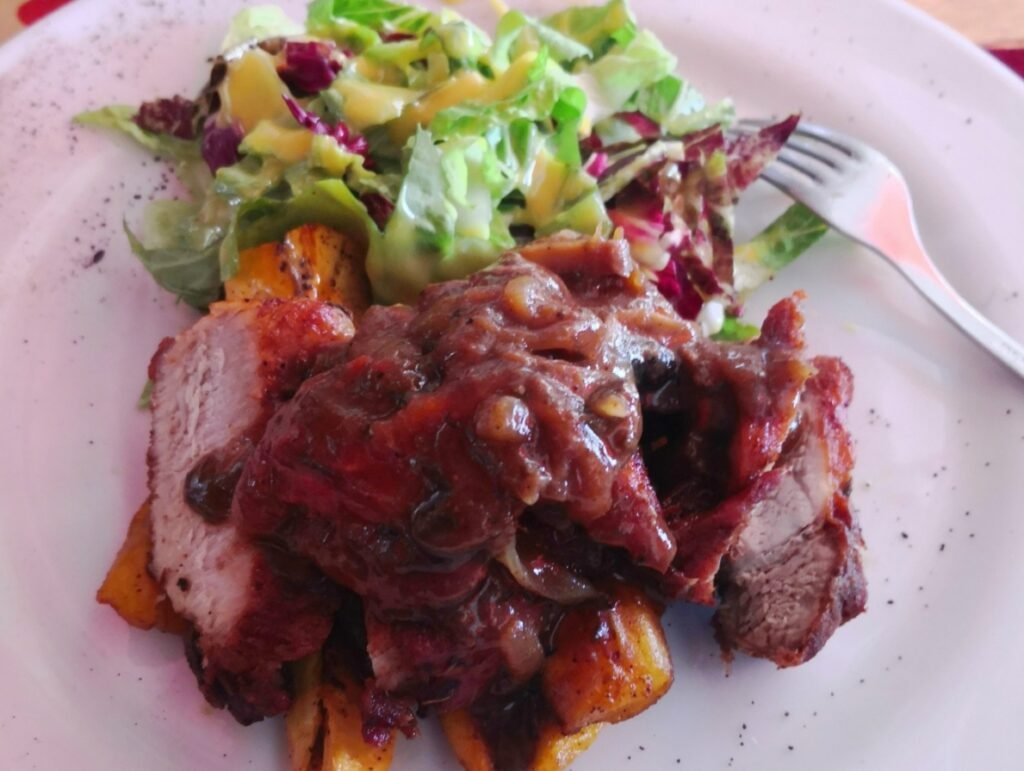
The stunning view definitely earned the restaurant some extra points. While the food was hard to swallow, the scenery made up for it. The surrounding greenery and red flowers were beautifully arranged, with white clouds and the turquoise sea seemingly right at our feet.
The landscape kept shifting as the mountain breeze blew the clouds, giving the view a different charm every few moments. It felt like the scenery transformed before our eyes, making the experience unforgettable despite the disappointing meal.
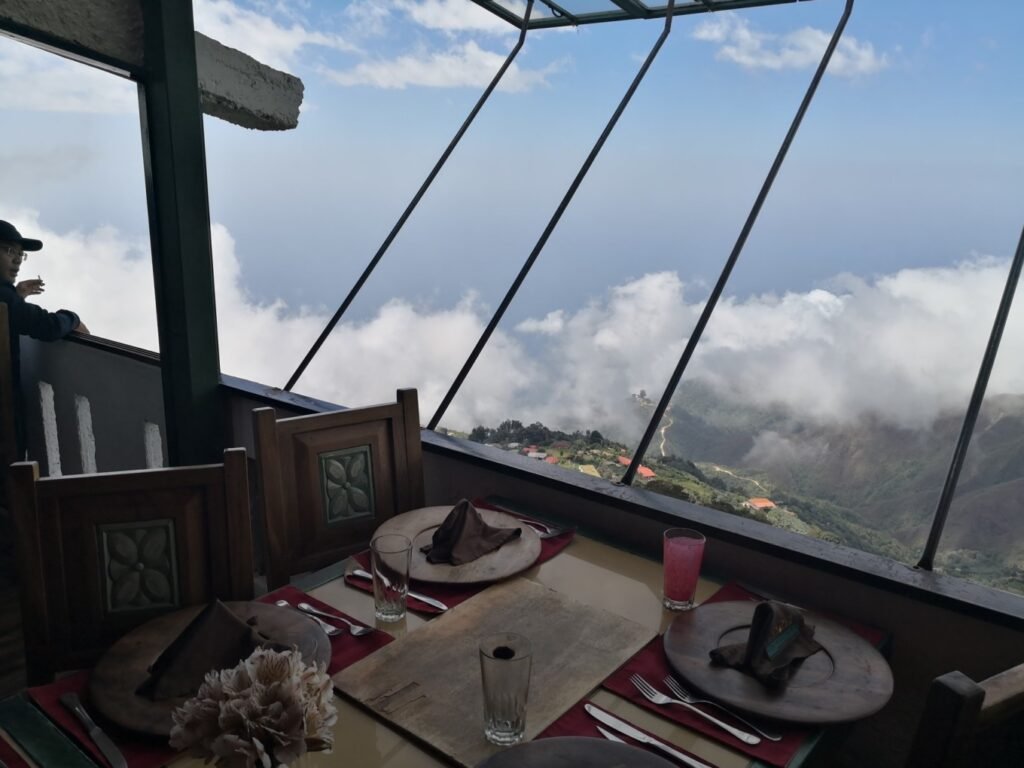

Seeing the Sea
Before heading to Venezuela, I was most excited about seeing the Caribbean Sea—no doubt heavily influenced by movies. The perfect plan would have been to explore some nearby islands, like the famous Los Roques. From the top of Mount Ávila, I had the chance to glimpse the Caribbean from afar.
The sea seemed to merge with the blue sky, hidden beneath drifting white clouds, making it difficult to fully appreciate its beauty. It felt as though the horizon was playing hide-and-seek, offering only brief hints of the ocean’s vastness.
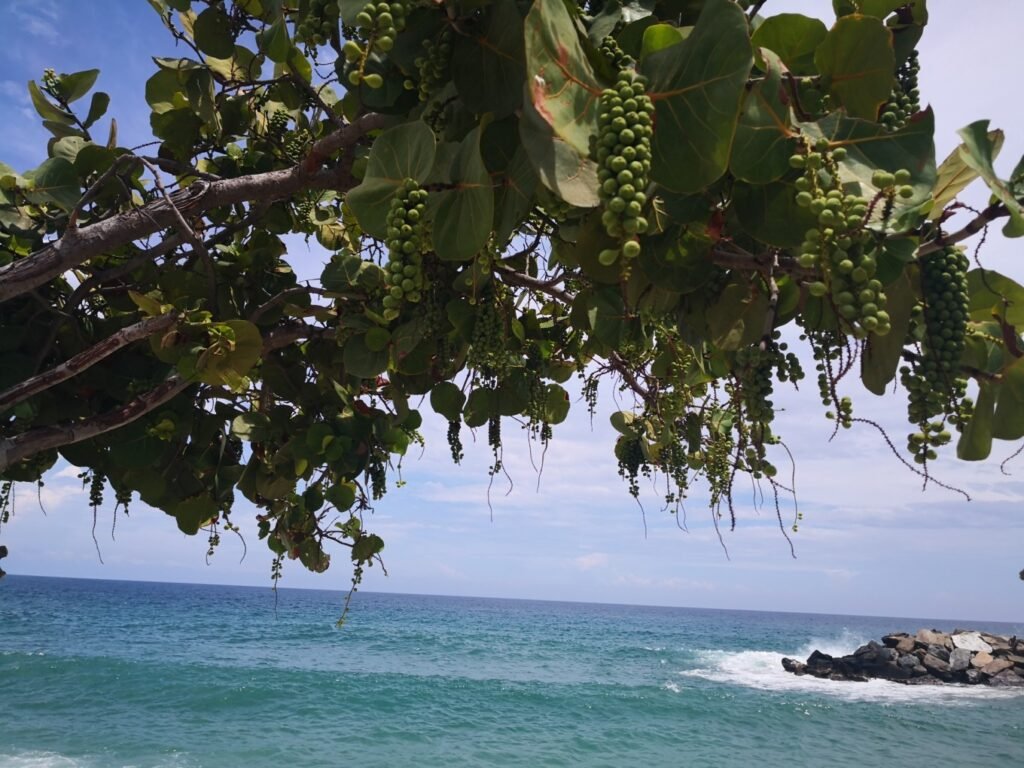
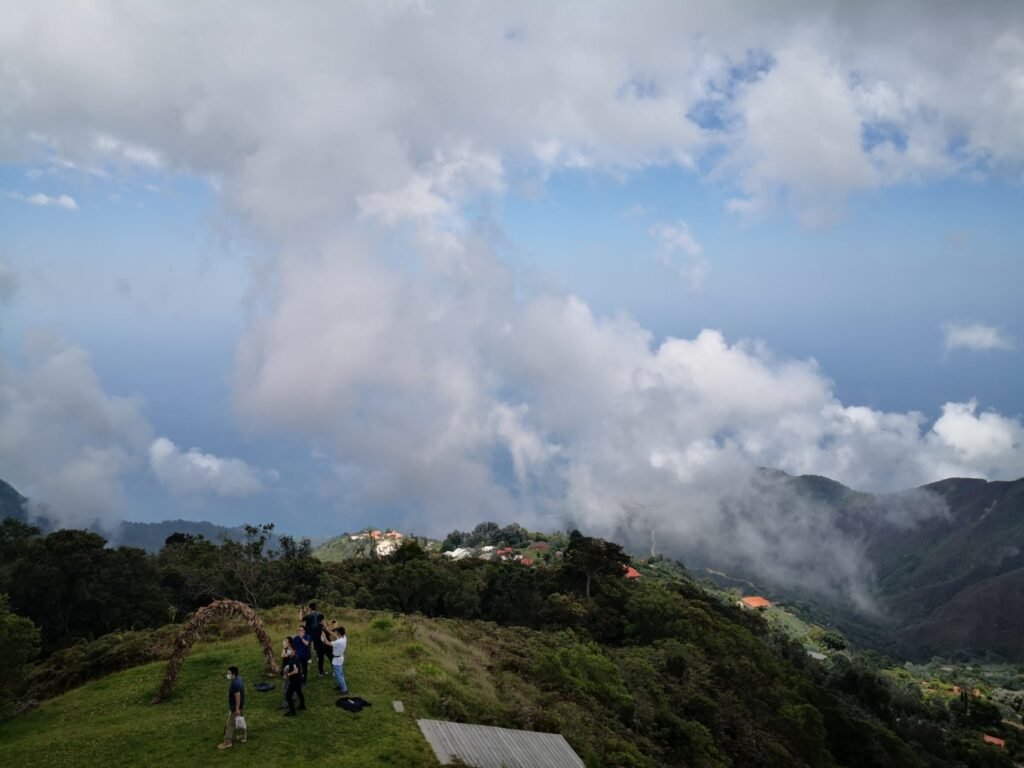
It’s hard to visit Venezuela without noticing the mountains. Even if you don’t hike, the mountains are visible every day from Caracas, as the city lies in a valley surrounded by towering peaks. To reach other places, you inevitably have to either cross or climb over these mountains.
From the top of Mount Ávila, you can look down on the Caribbean Sea, veiled in drifting clouds. The combination of towering mountains, white clouds, turquoise waters, winding paths, and rustic farms feels like a patchwork of scenic beauty stitched together into a picturesque landscape.
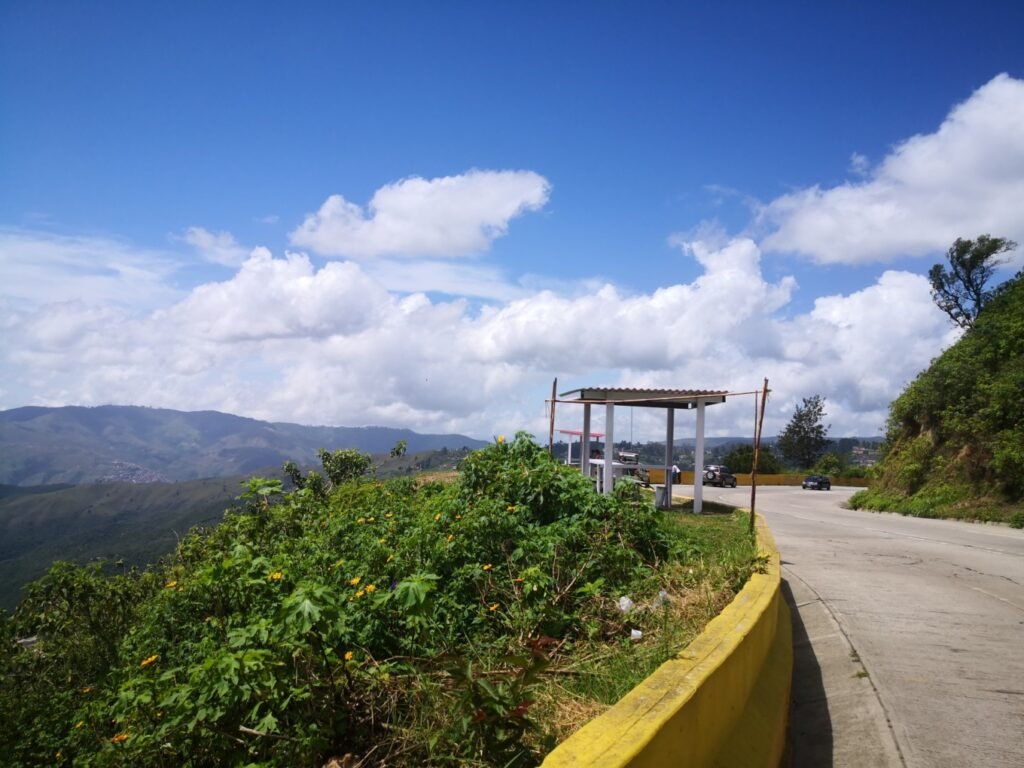
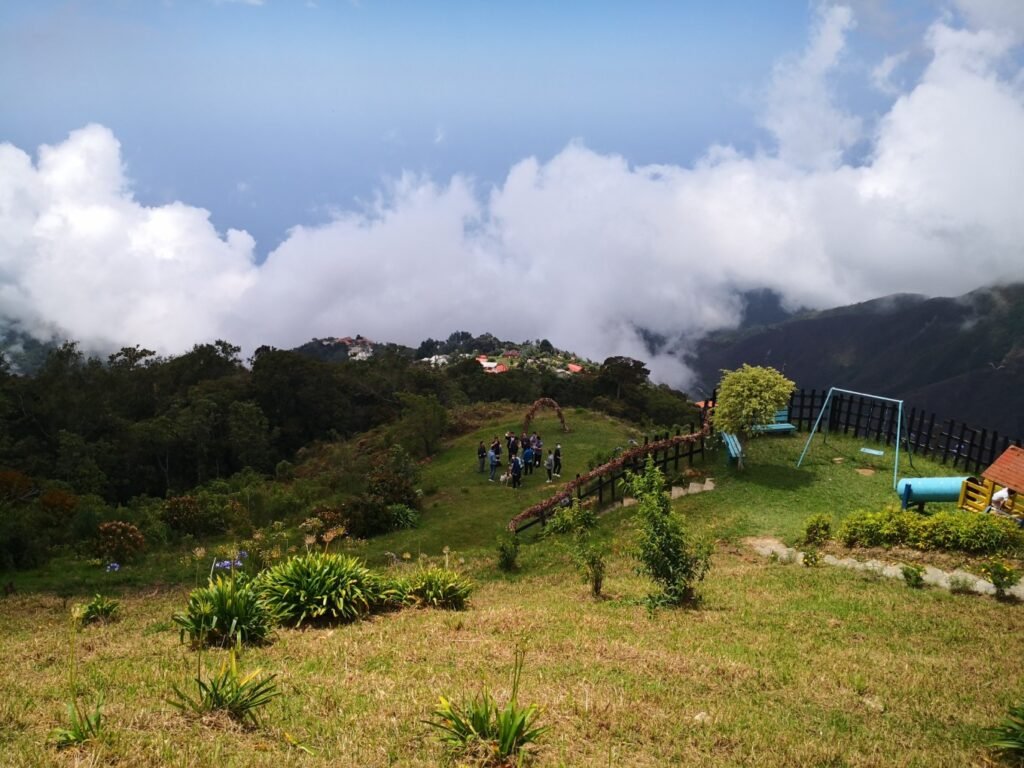
I’m reminded of a phrase I once read: “Latin America, so close to the United States, yet so far from heaven.”
Countless coups and endless internal and external conflicts have left Venezuela struggling in the mire of economic collapse to this day. I sincerely hope that one day this country can regain its former prosperity, allowing ordinary people to live with enough food and clothing, and giving the youth a reason to stay rather than seek survival abroad. May the most vulnerable no longer be forced to rely on crime just to get by.


